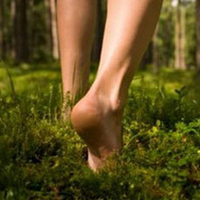Honouring the Earth is not only about green living and sustainability, but also about becoming mindful of our whole identity, which is defined as much by our ecological connections within the web of life as it is by our local self. Authentic living begins when we shift our attention to the present moment and become aware of the richness of life of which we are an integral part. With mindfulness, our relationship with nature will reveal itself.
The Earth is an amazing planet—a wonder of the universe— expressing the miracle of life in all its diversity and interconnectedness. Given the barren nature of the planets around us, and the extreme rarity of the conditions that have come together to create this rich tapestry of life upon Earth, it is truly an honour to be here, and to be part of the miracle. Yet, when we lack mindfulness, we forget this miracle, lose our gratitude, and dissociate from this reality, becoming trapped in a trance-like world of thought—a virtual reality.
Taking this Earth for granted, our ecological footprint upon it becomes heavier, until our actions turn against it with destruction, in a bizarre shift of insanity born of our dissociation and lack of mindfulness. Why insanity? Because we are turning against the very matrix of life that supports us. We are turning against what traditional cultures call our Great Mother, and our greater identity. We now have to seek evidence, in the form of studies, that show the benefits of spending time in nature, or the benefits of working with nature, to realise that perhaps we are stuck in a program of thought that has a serious flaw in it.
Yet, as we awaken to the depth of suffering that is occurring upon the Earth and within ourselves, our best choice is not to be frozen by guilt, or to allow our grief to disable us or to drive us into denial—but to develop compassion and gratitude for life. Compassion teaches us to become aware of the suffering of others, and our own suffering that causes us to dissociate from the matrix of life, and to free ourselves from our suffering by committing to our reintegration with life, and committing to thoughts and acts of kindness—both to ourselves and to all of life. Gratitude opens our eyes and our hearts to the blessings of life that we were previously not registering, and motivates us to act kindly and to live lightly upon the Earth. Developing these two qualities, with mindfulness as our compass, we can journey back to authentic living, and honour the Earth in doing so.
Here are 9 ways that you can honour the Earth on this journey of authentic living:
- Embrace your ecological self. Your ecological self is simply the extension of your true self into nature, along the pathways that interconnect life. Mindfulness can take you out of your inner trance of thought and reactive behaviour, and can shift your attention onto being consciously present in the natural world. Embrace your ecological self by becoming aware of how the natural world is inseparable from you, and how you feel more your true self by being present in nature. You may feel this most intensely when you are in a place of outstanding natural beauty, but learn to feel it when you are out in nature in your local environment or bioregion, and consciously seek out nature in the midst of your daily life—even if it is the grass pushing through the cracks of the pavement, the birds singing outside your window, the smell of rain, or the sunset you normally don’t get to see. Deliberately exposing our senses to our natural environment is important and healing to our spirit, for our senses can awaken us to how connected with nature we truly are.
- Become familiar with your bioregion. Your bioregion is the natural environment in your local area. It stretches across the area of land drained by your nearest river and its tributaries, and is often bordered by hills, mountains, or ridges. By becoming familiar with your bioregion you can understand the ecological needs of your local area, including its unique requirements for human inhabitation, and how to respond to these. You will also appreciate nature around you more, and open to its blessings. Start developing bioregional awareness by exploring the relationship of land and water in your area. Find out which river and tributaries drain your bioregion, and whether they are clear or polluted. Then note how the land is formed in your bioregion. What hills or mountains are there, and what do you experience when you climb them? What are the native plants and trees of your bioregion? What are the native animals, birds, fish, and insects? What is required for their habitats to be sustained? How is your life sustained by the ecology of your bioregion? What renewable natural resources can be found in your bioregion?
- Explore your gratitude for the Earth. Being thankful for the blessings of nature, right down to the air you breathe, the water you drink, the food you eat, and the materials you use, is a powerful reminder of the source of your physical life, and all that goes in to the Earth providing for you. As you discover the miracle of the web of interdependencies that make up the Earth, your gratitude for the whole Earth will increase. To help recognise the blessings of the Earth, practise mindfully opening all of your senses fully to the natural world, taking in all of nature’s details. Dare to walk barefoot in nature, feeling your connection with the Earth, and how the ground feels beneath your feet as you are supported by the Earth. Can you experience your spirit being enriched?
- Reduce toxicity. Pollution always stems from a toxic, dissociated mind. This causes us to devalue the land, water and air that sustain us, or the habitats and organisms that they contain, so that pollution has minimal consequences to us. By clearing your mind with mindfulness, allow yourself to stay present to the consequences of your actions. Allow your compassion to develop by wishing yourself and other life forms to be free from the suffering and illness that toxicity brings. Use non-toxic products, grow and purchase organic food, and support those companies whose production processes are non-toxic. If you do have toxic products, be mindful of their safe disposal. Pollutants can leak from landfills, buried tanks, and toxic dumps, and can be washed into soil, streams, and rivers by rainwater, which picks them up from roads, pavements, driveways, lawns, and farmland. Household chemicals that have been disposed of down the sink will end up in streams and rivers.
- Use local economies. The more that the scale of an economy is beyond that of a community’s locality, the harder it is to know the effects of our actions on the Earth, and the less ecologically accountable businesses can become. The infrastructure of global economics and centralised big business is generally more energy-intensive, polluting, and resource-depleting, especially when products are transported thousands of miles. To minimise your ecological footprint, buy and sell products and services in your local community economy, and support local, sustainable businesses and farms that are accountable to their community. This is the essence of the new economics. It can be easy to be tempted by the convenience of chain stores, but they are not locally owned businesses, and only displace local businesses in the end. The strength of local economies grows in proportion to our mindfulness and the strength of authentic community.
- Protect biodiversity. Biodiversity is the rich diversity of life that increases the stability and resilience of ecosystems. An ecosystem has a wider ability to respond to change and to absorb or reduce its effects when there is a greater diversity of species. Biodiversity also increases the potential for life to be self-realised. Tropical rainforests and wetlands are known to be the most diverse ecosystems on Earth, with 80% of the world’s biodiversity found in them. The practice of monoculture farming by large-scale, intensive-farming, in which large areas of forests are cut down to clear land for the planting of a single, highly profitable crop, has harmful ecological consequences as habitats are destroyed and biodiversity is reduced. One easy way for you to protect biodiversity is to grow your own food, either individually or as a community, or to purchase food from a local organic farm.
- Plant a tree or cultivate native species of plants. Planting a tree that is native to your area is a simple but profound ecological act. Trees provide habitats for species, help reduce air pollution, improve soil, and can reduce energy use when planted in the right place near buildings—they provide wind protection in the winter, and shade in the summer. Cultivating native plant species, particularly where they are under threat due to human activity, can help to sustain and restore ecosystems. You may like to consider cultivating plants that attract endangered butterflies and other insects that benefit your local ecosystem.
- Recycle. Recycling saves valuable natural resources, such as trees and fossil fuels; reduces polluting landfill waste; and uses less energy than creating new products—with a corresponding reduction in pollution. When we observe nature we see that the waste of one species or ecological process is always recycled as the food or resource of another. Ecologically mindful businesses can now do the same and practise the zero waste principle by designing their output wastes to be input resources for other production processes. At home you can do the same by composting your organic waste and recycling harvested rainwater and used water from sinks, baths, and showers for watering plants.
- Use shared and renewable resources. The endless duplication of resources in mass society that could be shared is a symptom of the breakdown of authentic community, and results in a greater demand for natural resources, and greater pollution. What can you share with others today? What friends can you make by doing so? What community can you build to make the sharing of resources possible? Using locally sourced, natural and renewable resources is the key to sustainable resource use. Where possible, solar and wind energy can be used in the first instance to meet energy needs, as no natural resources are depleted. Solar photovoltaic cells and small wind turbines can provide electricity, while solar water heaters can provide hot water.
To learn more about mindfulness and how it can enrich our lives and increase our wellness, follow along with these posts on mindfulness.
Like this article? Spread the word by sharing the link.



It truly IS an honour to be part of this miracle!
thank you Leigh for an interesting read…. have passed it on kath…..
Great article, thank you Very useful tops. You may add study for careers in green, progressive fields to your list and round up a top 10 next year. I sure would like to read your expanded notes on that subject.